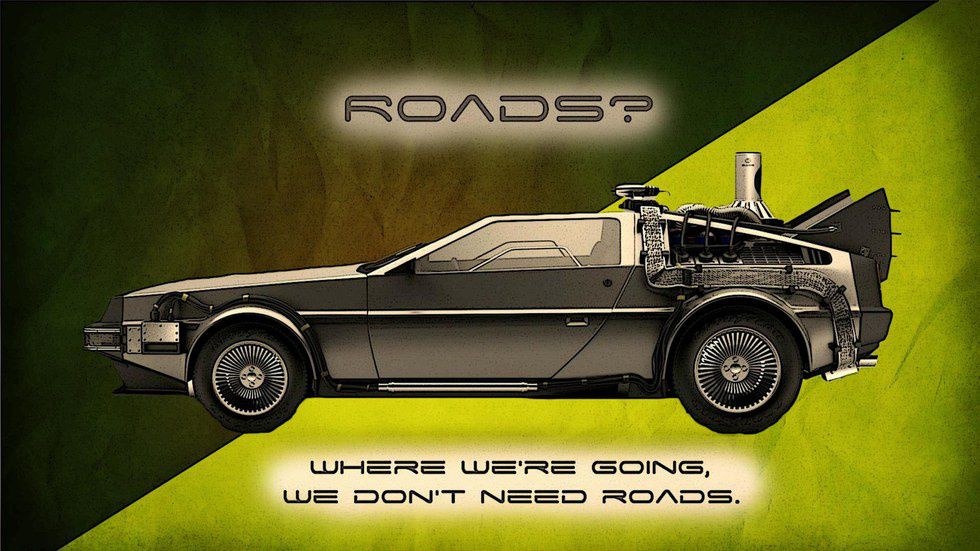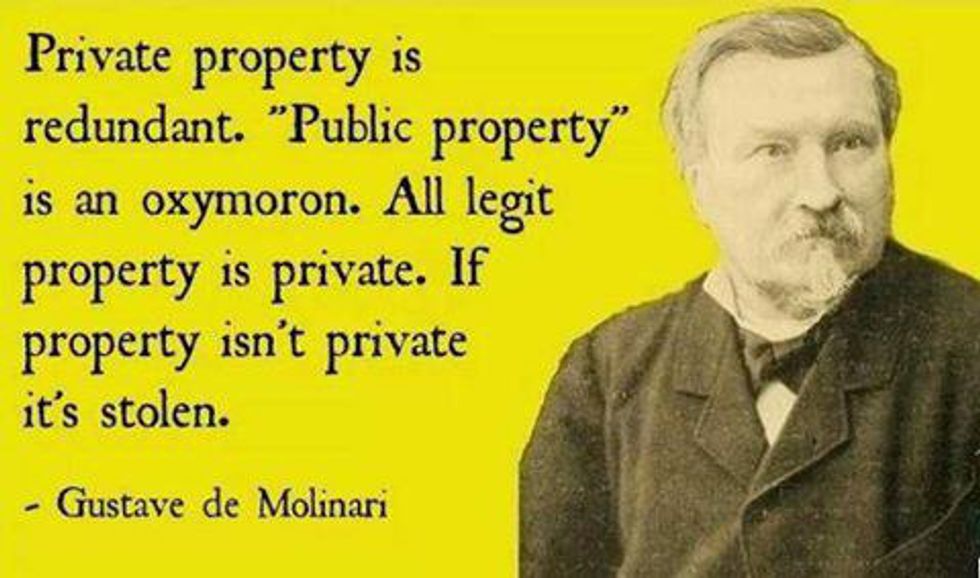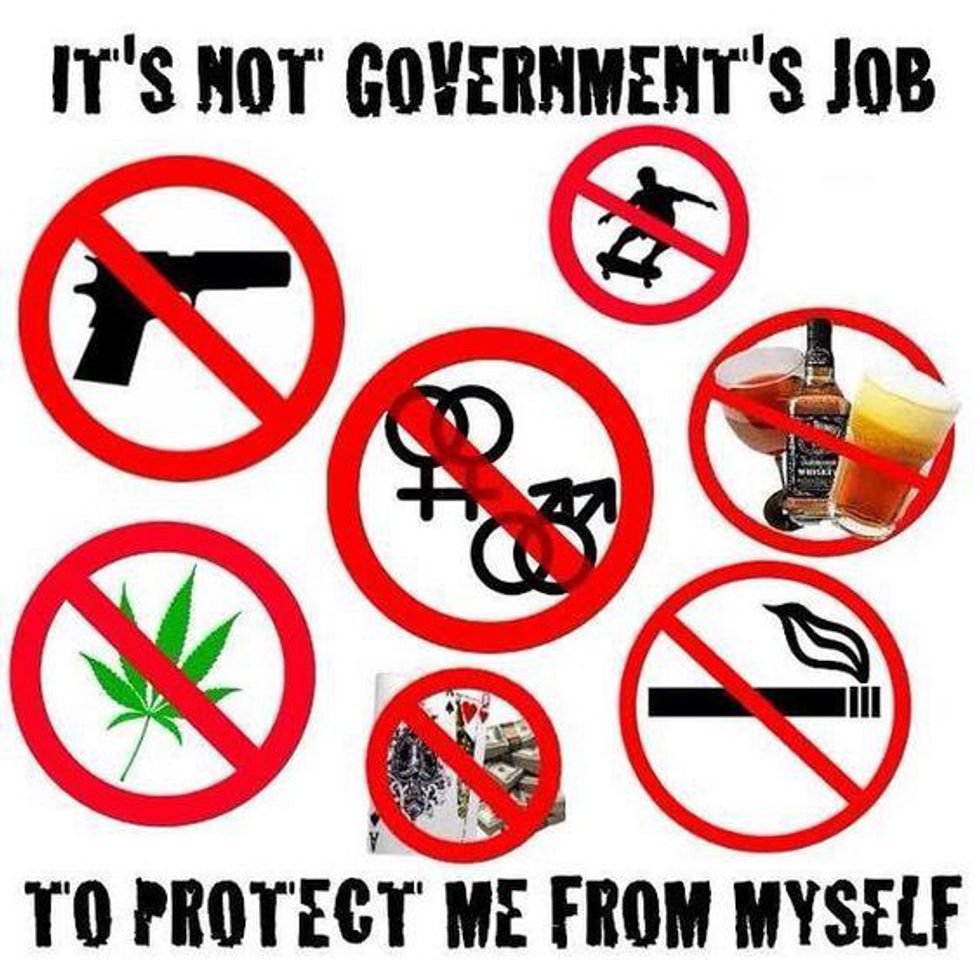In part one of this series, I provided a basic introduction to the “anarchist” and “voluntaryist” ideologies. In part two of this series, I examined the inevitable end of statism, otherwise known as democide. In this edition, I will take a broader look at anarchism, by refuting the most common arguments against it.
For other questions or concerns, feel free to comment below or shoot me an email, shane@libertyunderattack.com, and I will do my best to address them.
Let’s get started.
1. "Without government, who will build the roads?"
Back before abolition, this question would be similar to, “Well, without slaves, who would pick the cotton?” To put it simply, the same people who build them now — private companies. Government simply acts as the middle man by contracting out the work and much time and money is wasted when they act as the facilitator. Simply put, people already pay for roads by way of coercive taxation, and since they are a necessity (demand), entrepreneurs will be incentivized to supply them.
2. "But without government regulation, the free market (entrepreneurs) would rip off their customers."
Believe it or not, government is actually a terrible “investment.” Additionally, this question also expresses a fundamental misunderstanding about the free market. When it comes to government, there is a monopoly; in a free market, there is competition. When there is competition, quality goes up, prices go down. Let’s say there was an entrepreneur gouging his customers — it would actually create a market demand for more affordable goods and services. The only way the businessman would be able to continue gouging his customers would be to arbitrarily raise the barriers to entry, and in the real world, this is done by way of government law ( fascism/corporatism), not through market dynamics.
3. “Without government, who would care for the poor?”
The simple fact that you are asking that question implies that you care for the poor. Henry Hazlitt once said, “The only real cure for poverty is production.” Yet, production comes from the market, not from the government. Before the New Deal, there were friendly societies, whose function was to care for the poor through voluntary charity. It just so happens that poverty was decreasing rapidly until government interfered. That said, if you care for the poor, you should oppose taxation and the programs that actually end up hurting those they are intended to help.
4. “Without government, who would protect the rights of minorities?”
As Murray Rothbard once said, “Rights are universal, but their enforcement must be local.” As per Hans-Herman Hoppe’s argumentation ethics, if the person in question is capable of arguing, then they enjoy private property rights. Since “society” (and all demographics thereof) are made up of individuals, those said individuals are ultimately responsible for defending their own rights. Governments cannot protect the rights of minorities because the government does not protect the property rights of anyone in the first place. In summation, government is the entity that instituted race slavery and also marriage licensure to prevent interracial marriage.
5. “Without government, who would protect public property?”
According to the government’s own lawyers, the government acts as trustee for “public property." As such, this property is owned collectively by the public, which is composed of the people in common. However, over time, the government has become a despotic trustee. So the question is not so much who is to protect “public property," but rather who is to replace government as the trustee? It could also be argued that “public property” itself is nothing more than the tragedy of the commons in action.
6. “Without government, who would defend us from the _________________ (Russians, Muslims, Communists etc.)?”
The government’s borders are “public property," except when they are not. Simply put, the international borders are a failed government program, and, as such, they are evidence that the government is incapable of defending its own citizenry from hostile foreigners. Therefore, a bloated military bureaucracy armed with the latest technology is ultimately superfluous in deterring and repelling invasion. Specifically in regards to Muslims, the United States government’s foreign policy (through sanctions, mass murder and destruction of infrastructure) explicitly encourages attacks upon Americans; this is known in the intelligence community as blowback. Public policy proposals that aim to restrict immigration or build walls deliberately avoid addressing the foreign policy entanglements into the affairs of other nations.
7. “Without government, who would ‘keep the peace?'”
In the time of the founding, there was no such thing as a professional police force. Rather, each individual citizen had a duty to “keep the peace” and subdue criminals. That said, professional policing has actually had the complete opposite effect of “keeping the peace,” and is instead detrimental to the life, liberty and property that each individual is guaranteed inherently. Private security provides a much better alternative, an example being the Threat Management Center in Detroit.
8. “Without government, who would issue the money?”
I'll leave this one to Carl Menger:
“The origin of money…is, as we have seen, entirely natural and, thus, displays legislative influence only in the rarest instances. Money is not an invention of the State. It is not the product of a legislative act. Even the sanction of political authority is not necessary for its existence. Certain commodities came to be money quite naturally, as the result of economic relationships that were independent of the power of the State.”
In summation, cryptocurrencies (i.e. Bitcoin) are the embodiment of the natural evolution of money, and gold and silver have been around forever.
9. “Without government, everything would be chaotic — there would be blood in the streets and people rioting.”
Consider the aforementioned police state, democide (murder by government), the warfare-welfare state, mass surveillance, political prisoners arrested for victimless crimes, central banking, civil asset forfeiture, narcotics prohibition (the war on drugs), etc. We are already living in the "Mad Max" (post-apocalyptic) world, and it is because government inherently brings chaos. It is the unilateral, coercive imposition of authority that creates such social instability. If the tools necessary for a “civilization” are coercion and the initiation of force, you are not living in a “civilized society.”
10. “Without government, who would protect me from myself?”
The government constantly abuses the precautionary principle. They feel it is their duty to protect you from yourself, without knowing anything about your individual preferences. Since you are an individual, it is your duty to defend against aggression and to minimize risk wherever it is necessary. Victimless crimes are simply an excuse by government to infringe upon your liberty, despite the fact that there has been no crime. In accordance with the libertarian twin axioms of non-aggression and self-ownership, you have the right to protect yourself from coercion. Simultaneously, you are also absolutely responsible for the consequences of indulging in your vices.
Conclusion
It's important to note that most (if not all) of these questions relate to how society would function without government. That said, as a free market anarchist, I believe in spontaneous order; that is, individuals voluntarily exchanging to meet the needs of society. I don't claim to know the best way to "organize" in Ancapistan, but I do understand that some of these concerns need to be addressed in order to move forward.
So far in this series, it should be quite clear that government is not the answer, but the journey has just begun. The case against the State will continue.
As Murray Rothbard once said, "The State is, and always has been, the great single enemy of the human race, its liberty, happiness, and progress."






















